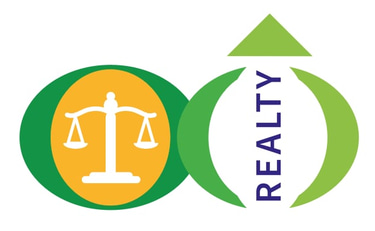Understanding Property Titles in the Philippines: Your Guide to Safe Ownership
This blog will walk you through the different types of property titles in the Philippines, how to verify their authenticity, and what estimated costs to expect in 2025. We’ll also share practical tips to help you avoid scams and protect your investment.
By: Atty. Orlando C. Dy
6/15/20253 min read
In the Philippines, owning real estate is a major milestone—but many Filipinos don’t realize that you’re not a legal owner until your name appears on the property title. Even if you’ve fully paid for the land and signed a notarized agreement, you have no legal standing without a valid and properly registered title.
What Is a Property Title?
A Property Title is a legal document issued by the Registry of Deeds under the Land Registration Authority (LRA) that certifies who owns a piece of land or condominium. It includes the owner’s name, the land’s technical description, size, location, and any legal claims or encumbrances against the property.
This document is your ultimate proof of ownership. Without a registered title in your name, you may have no legal right to the property even if you live there or paid for it.
Types of Property Titles in the Philippines
There are three common types of property titles:
Original Certificate of Title (OCT) – This is issued for the first registration of land. It typically applies to public land awarded by the government or titled through court proceedings.
Transfer Certificate of Title (TCT) – This is issued when the property is sold, donated, or inherited. It replaces the previous OCT or TCT and is registered under the new owner’s name.
Condominium Certificate of Title (CCT) – This is similar to a TCT but applies specifically to condominium units
Understanding which type of title you hold is important when verifying ownership and transferring property.
How to Verify a Land Title in 2025
Before buying any property—or even accepting it as a gift or inheritance—you must verify the title’s authenticity. Here’s how to do it step by step:
1. Request a Certified True Copy (CTC)
Visit the Registry of Deeds where the property is located and request a Certified True Copy of the title using the registered owner's name and the title number.
Estimated cost in 2025: ₱350 – ₱500
Processing time: 1–3 business days
2. Compare with the Owner’s Copy
Once you have the CTC, compare it to the seller’s original title. Make sure all the details match, especially:
The title number
The owner’s full name
The land’s technical description
The size, location, and boundaries
Avoid titles that have erasures, tampering, or missing registry seals.
3. Check for Annotations or Encumbrances
On the second page of the title, you’ll find annotations such as mortgages, liens, adverse claims, and pending court cases. These legal claims can affect your ownership rights.
If there are any encumbrances listed, consult a lawyer before proceeding.
4. Match with Tax Declaration
Ask for the Tax Declaration from the City or Municipal Assessor’s Office. This document should reflect the same size and ownership details as the title. A mismatch can mean the title has not been updated or may be fake.
Estimated cost for certified tax declaration: ₱200 – ₱300
Common Red Flags
Watch out for these warning signs:
Seller cannot present the original Owner’s Duplicate Copy
The name on the title does not match the seller’s ID
The property is still declared in the name of a deceased person
Photocopies or altered titles are presented
Annotations reveal legal disputes or unpaid mortgages
If any of these apply, do not proceed without legal advice.
Estimated Costs for Title Verification (2025)
To help you plan your budget, here’s a breakdown of the estimated costs for verifying a property title in 2025:
Item Estimated Cost (₱) Certified True Copy of Title₱350 – ₱500Tax Declaration Copy₱200 – ₱300Notarized documents (if needed)₱1,500 – ₱2,500Legal due diligence (optional)₱3,000 – ₱10,000Legal consultation FREE with our team
Spending a few thousand pesos now can help you avoid hundreds of thousands—or even millions—in future losses.
What Happens if You Buy Fake Property Title?
The consequences of buying property with a fake or invalid title are severe. You could:
Lose the property entirely
Face lawsuits or estafa charges
Spend ₱50,000 to ₱250,000 in legal fees
Wait years in court with no guarantee of winning
That’s why due diligence is non-negotiable when acquiring property.
Tips to Protect Yourself
Always verify the seller’s identity and compare it with the name on the title.
Don’t rely on verbal agreements or handwritten contracts.
Make sure the tax declaration is updated and matches the property title.
If you’re unsure about anything, consult a real estate lawyer.
Be extra careful when dealing with foreclosed properties, inherited lands, or informal sellers.
Final Thoughts
A valid land title is not just a piece of paper—it’s your legal armor. Whether you're buying, selling, or inheriting land, make sure your title is authentic, updated, and free of legal defects. Verifying property documents may seem tedious, but it’s far better than spending years resolving a costly legal dispute.
Get a Free Legal Review of Your Property Title
Our legal team offers free consultations to help you:
Check the authenticity of land titles
Review documents for errors or encumbrances
Guide you through the title verification and transfer process
📧 Email: attyorly@ocdrealtyph.com
📍 Offices: Las Piñas • Bacoor, Cavite
Trust
Your partner in modern real estate solutions.
Email: info@ocdrealtyph.com
Contact Nos. 0997-198-8882 | 0918-9450176
© 2025. All rights reserved.
Address: 2/F JS Building, 240 E. Aguinaldo Highway, Panapaan IV, Bacoor City, Cavite for all your real estate needs.
